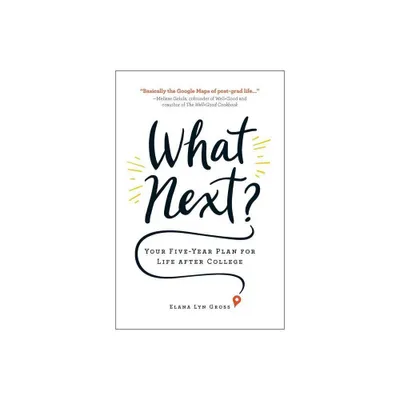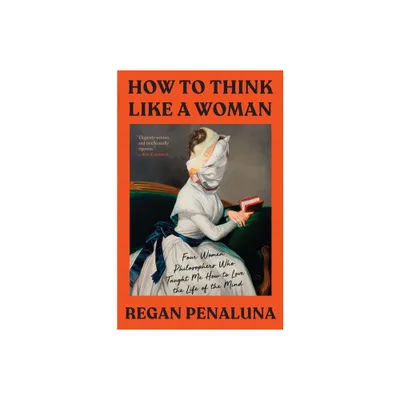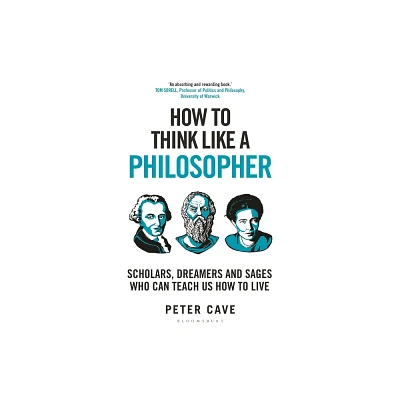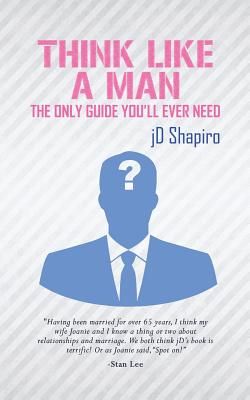Home
Think Like a Futurist: Know What Changes, Doesn't, and What's Next
Loading Inventory...
Barnes and Noble
Think Like a Futurist: Know What Changes, Doesn't, and What's Next
Current price: $27.95


Barnes and Noble
Think Like a Futurist: Know What Changes, Doesn't, and What's Next
Current price: $27.95
Loading Inventory...
Size: Hardcover
*Product Information may vary - to confirm product availability, pricing, and additional information please contact Barnes and Noble
Push past resistance to discover and own new business territories
Think Like a Futurist
shows how to track changes, explore questions, and engage in new thinking that connects today's pressures with tomorrow's realities. Cecily Sommers shows how to apply long-term focus and strategies to needs as diverse as industry forecasts, innovation challenges, leadership development, or future-proofing a brand. By understanding intersecting potentials that one day may impact your organization, you can readily spot emerging trends and market shifts, uncovering opportunities on the horizon.
explores such questions as: Where will new markets emerge over the next 5-10-25 years? What will be the big issues of the day? How will lifestyle, social mores, and policy adapt? And what role do we play in that future?
Offers a clear framework for thinking like a futurist, and direction for how to integrate it in high-pressure corporate environments
Explains how the social, economic, and environmental crises of our time spring from just four constant and predictable forces
Reveals the three dramatic disruptions on the horizon that should be a part of every strategic conversation
Written by Cecily Sommers the Founder and President of The Push Institute, a non-profit think tank that tracks significant global trends and their implications for business, government, and non-profit.
Filled with tools and models for a new world, this book should be required reading for strategists and innovators across disciplines.
"Refreshing. A book that does not follow today’s push to be ‘innovative’ just to snag attention because of the current hot trending keyword. Matter of fact, Cecily Sommers’ book works to get us away from simply identifying and going for a ride on the latest trend(s) in our respective industries.
Quite the contrary, rather than avoid a scientific or tactical discussion of trend identification, she works to give us the ability to go beyond trends and into the future.
Cecily has drafted a book providing a nice blend of practical reality, philosophy, and practical execution. It speaks well to current discussions about how to drive ‘innovation’ or, better, creativity within your businesses—however large or small.
All in, this is a book 254 pages long, including index, that is written at a practical level that, after closer study following an initial read-through, provides a methodology for anticipating the future and taking action to meet it.
Provides a methodology for anticipating the future and taking action to meet it.
Think Like a Futurist is a good read for anyone struggling with how to move their organization forward. Business leaders, product and program managers, service providers will all find the concepts Cecily introduces to be well laid-out with a reasonable amount of supporting content."—The source is a blog: http://jtpedersen.net/2012/11/15/what-ive-read-lately-think-like-a-futurist/
Think Like a Futurist
shows how to track changes, explore questions, and engage in new thinking that connects today's pressures with tomorrow's realities. Cecily Sommers shows how to apply long-term focus and strategies to needs as diverse as industry forecasts, innovation challenges, leadership development, or future-proofing a brand. By understanding intersecting potentials that one day may impact your organization, you can readily spot emerging trends and market shifts, uncovering opportunities on the horizon.
explores such questions as: Where will new markets emerge over the next 5-10-25 years? What will be the big issues of the day? How will lifestyle, social mores, and policy adapt? And what role do we play in that future?
Offers a clear framework for thinking like a futurist, and direction for how to integrate it in high-pressure corporate environments
Explains how the social, economic, and environmental crises of our time spring from just four constant and predictable forces
Reveals the three dramatic disruptions on the horizon that should be a part of every strategic conversation
Written by Cecily Sommers the Founder and President of The Push Institute, a non-profit think tank that tracks significant global trends and their implications for business, government, and non-profit.
Filled with tools and models for a new world, this book should be required reading for strategists and innovators across disciplines.
"Refreshing. A book that does not follow today’s push to be ‘innovative’ just to snag attention because of the current hot trending keyword. Matter of fact, Cecily Sommers’ book works to get us away from simply identifying and going for a ride on the latest trend(s) in our respective industries.
Quite the contrary, rather than avoid a scientific or tactical discussion of trend identification, she works to give us the ability to go beyond trends and into the future.
Cecily has drafted a book providing a nice blend of practical reality, philosophy, and practical execution. It speaks well to current discussions about how to drive ‘innovation’ or, better, creativity within your businesses—however large or small.
All in, this is a book 254 pages long, including index, that is written at a practical level that, after closer study following an initial read-through, provides a methodology for anticipating the future and taking action to meet it.
Provides a methodology for anticipating the future and taking action to meet it.
Think Like a Futurist is a good read for anyone struggling with how to move their organization forward. Business leaders, product and program managers, service providers will all find the concepts Cecily introduces to be well laid-out with a reasonable amount of supporting content."—The source is a blog: http://jtpedersen.net/2012/11/15/what-ive-read-lately-think-like-a-futurist/


















